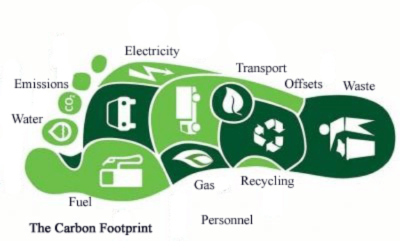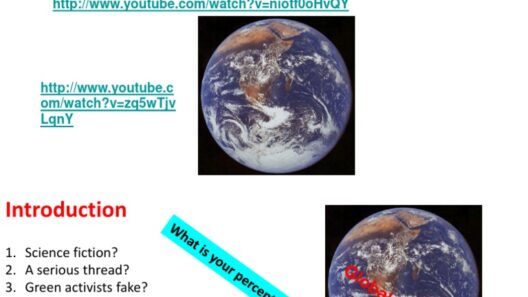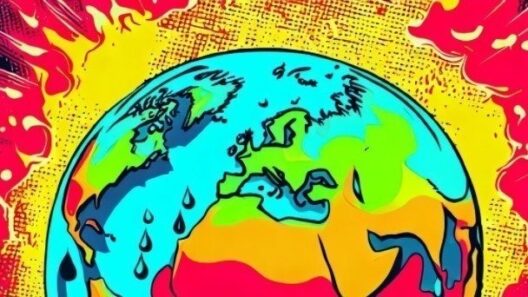Global warming represents one of the most pressing challenges of our time, prompting critical inquiry into whether humanity has irreversibly passed the point of no return. This inquiry hinges on several environmental, technological, and socio-political considerations that merit thorough exploration.
First, it is vital to understand the concept of the “point of no return.” This term refers to a threshold beyond which the consequences of climate change become self-perpetuating and catastrophic. Some scientists suggest that certain tipping points, such as the disintegration of the Greenland ice sheet or the thawing of Arctic permafrost, could have such devastating effects that they would render our climate unmanageable. Once certain thresholds are crossed, the ramifications could lead to an irreversible climate crisis affecting global ecosystems, human health, and economic stability.
The current trajectory of carbon emissions presents alarming indicators. The concentration of carbon dioxide in the atmosphere has exceeded 400 parts per million, a level not seen for millions of years. This escalation strengthens the greenhouse effect, trapping heat and resulting in more extreme weather patterns, rising sea levels, and altered precipitation phenomena. These transformations not only devastate natural habitats but also threaten food security and water supply, exacerbating socio-economic inequalities worldwide.
To further assess if we have passed this critical juncture, scientists model various scenarios based on current and projected emissions. They simulate outcomes based on differing levels of international cooperation, energy innovations, and societal commitments to mitigation strategies. The Intergovernmental Panel on Climate Change (IPCC) provides a wealth of data that compiles these analyses, underscoring the urgent need for decisive global action.
However, alongside grim data, there exists a parallel narrative of innovation and resilience. Technological advancements in renewable energy, carbon capture, and energy efficiency present hopeful avenues for reversing some of the damages wrought by fossil fuel consumption. Solar and wind energy technologies, for instance, have transformed from niche markets to mainstream alternatives, demonstrating the feasibility of achieving significant reductions in greenhouse gas emissions. Nations and corporations progressively invest in these technologies, fostering job creation while transitioning to a low-carbon economy.
Public awareness and grassroots movements have invigorated the global climate discourse, demanding accountability from both governments and corporations. Activism surrounding climate change has grown exponentially, underscoring a widespread urgency for transformative policies. Youth-led movements are particularly poignant, highlighting a generational divide where younger populations bear the brunt of climate inaction while fervently advocating for sustainable futures.
A critical aspect of this discourse revolves around climate justice. The impacts of climate change disproportionately affect the most vulnerable populations, often in low-income regions. This intersection of environmental degradation and social inequity exacerbates pre-existing disparities and leads to calls for equitable resource distribution and systemic reform. Tackling climate change thus necessitates not only a technological but also a moral approach, promoting inclusivity and ensuring underrepresented communities have a voice in policymaking processes.
The concept of “net-zero” emissions has emerged as a critical target in climate strategy, advocating for a balance between greenhouse gas emissions produced and emissions removed from the atmosphere. This paradigm shift challenges industries and nations to reevaluate their climate commitments seriously. While companies adopt these ambitions, scrutiny regarding the sincerity of such pledges persists. Greenwashing, the practice of making misleading claims about environmental benefits, can dilute meaningful progress, necessitating transparent metrics and accountability mechanisms.
In light of ongoing climate negotiations, the question remains whether the collective international commitment through agreements such as the Paris Accord is sufficient. The urgency for stronger policy frameworks is underscored by the reality of climate-induced disasters, which increasingly strain national aid systems and humanitarian resources. Each passing year seems to reinforce the urgent need for cooperative international action to bolster resilience against climate impacts while meeting global commitments to limit temperature rise.
The role of ecosystems as buffers against climate change cannot be understated. Forests, wetlands, and marine environments play critical roles in carbon sequestration and biodiversity preservation. However, habitat destruction and pollution relentlessly threaten these essential systems. Conservation strategies, such as reforestation and ocean restoration, provide avenues to remediate environmental degradation, while fostering coexistence with nature. By actively protecting and restoring these ecosystems, we bolster our capacity to combat climate change effectively.
Ultimately, the inquiry into whether we have passed the point of no return is nuanced. It is a question replete with uncertainties, characterized by both risk and resilience. The path forward necessitates a collective reimagining of our relationship with the planet, where sustainability is woven into the very fabric of economic and social frameworks. The balance between technological innovation and equitable policies must guide us toward a future where harmony with nature prevails.
In summary, while ominous signs speak to potential irreversible changes driven by global warming, there remains a compendium of opportunities for action. The confluence of technology, activism, and a commitment to climate justice presents a formidable counterbalance to despair. The dialogues surrounding climate change engender urgency, yet they also sow seeds of hope in humanity’s capacity to address the most daunting environmental challenge of our time. The future remains unwritten, contingent upon the actions taken today.







